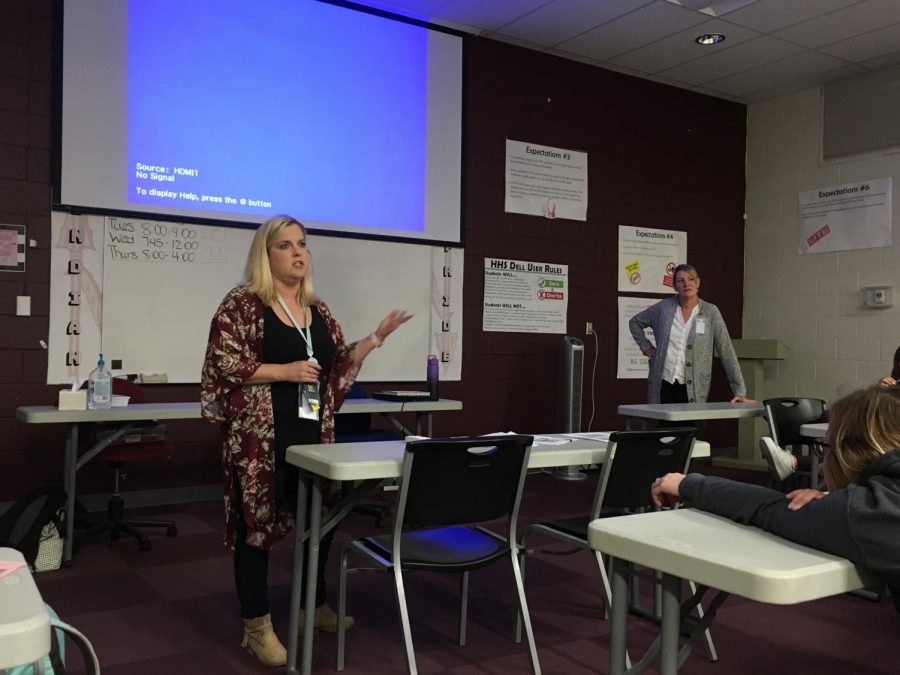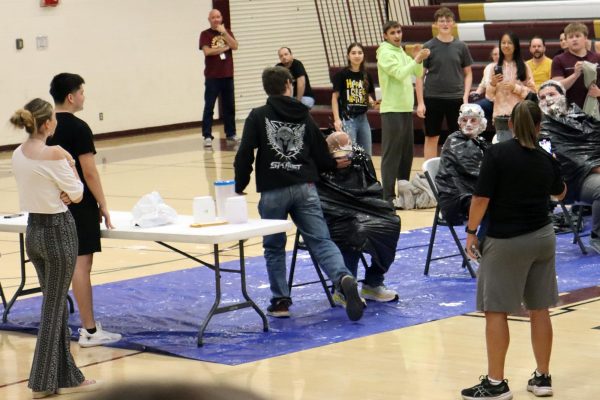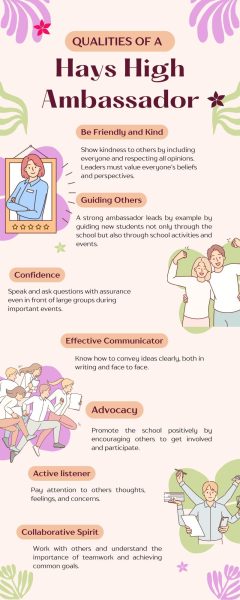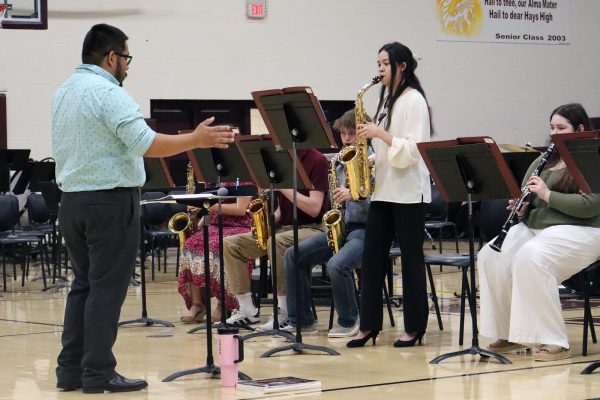Members of Hays Area Children Center’s Early Intervention Team present to students during PRIDE Time on Oct. 17
Early childhood special education specialist Jennifer Oborny talks about her job as part of the Hays Area Children Center’s Early Response Team. The team goes out on home visits to asses the abilities of those with suspected developmental delays. The team works with the family to incorporate different techniques into their daily routines to maximize their child’s development.
Hays Area Children Center’s Early Intervention Team members Jennifer Oborny and Susan Hess visited with students during PRIDE Time on Oct. 17.
On the team, there is a speech/language pathologist, early childhood special education teacher, physical therapists, occupational therapists and a nurse.
“We provide family-centered services for children birth to three with special needs that promote development and maximize their abilities,” Oborny said.
The Early Intervention Team visits the homes of children suspected of developmental delays and asses their abilities. During the visit, the team asses all areas of development, even if they were only referred because of one specific developmental delay. At least two members of the team must be present at each home visit.
“We assist infants and toddlers to obtain their appropriate developmental levels, maximize their potential by providing those services earlier to reduce the long-term educational costs, minimizing needs for special education services,” Oborny said.
The ultimate goal of early intervention is to assist those with disabilities from ages birth to three so those children meet the developmental milestones and don’t need special education.
Oborny and Hess help those children achieve those milestones by working with the families.
“We look at the family’s routine during the day, bath time, getting them dressed, playtime, and give them opportunities to embed some of our strategies and techniques to promote development during those times,” Oborny said.
Hess said one of the surprising parts of her job is how closely she works with the families and how at times she is almost like a counselor.
“You are very much supporting them and fostering better relationships with their children,” Hess said. “We help them access housing, food, transportation to medical appointments, which adds an element of social work to my job.”
Being bilingual proves very useful in this career as it eliminates the need for a translator to come along on home visits where the family’s first language isn’t English.
“If you are bilingual and have any interest in early childhood special education, speech/language pathology, occupational therapy, physical therapy, anything like that you would be an incredible asset to the career,” Hess said.
21afeyerherm@usd489.com

Alicia Feyerherm is a senior, and this is her fourth year in Newspaper. She is very honored and excited to be in the role of Editor-in-Chief this year....







